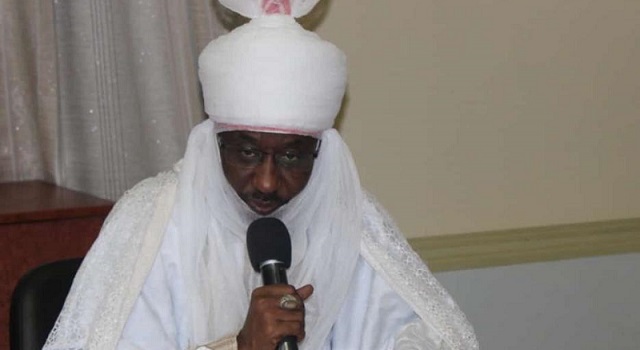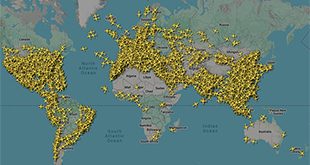
Kano, Nigeria | AFP | One of Nigeria’s leading and respected Islamic figures on Tuesday renewed calls to tackle endemic poverty and rapid population growth to help end deadly Boko Haram violence.
More than 27,000 people have been killed since the start of the insurgency in the country’s remote northeast in 2009 and 1.8 million are still homeless.
Nigeria’s government and military maintains it has severely weakened the jihadists to the point of defeat but attacks remain a constant threat to civilians and soldiers.
The Emir of Kano, Muhammadu Sanusi II, said the Islamist militants would always find willing recruits unless the root causes of radicalisation were addressed.
“We cannot divorce insecurity from the discourse on development and discourse on poverty,” he told academics and clerics at a conference on Boko Haram in Kano city.
Sanusi, a former governor of the Central Bank of Nigeria, said climate change, particularly the shrinking of Lake Chad, has had a devastating effect on local livelihoods.
Northeast Nigeria is largely dependent on fishing and agriculture but nine years of fighting has blighted both industries.
The semi-desert region was impoverished even before the start of the violence and ranked consistently low on human development indices compared to the more prosperous south.
“We cannot divorce… horizontal inequalities from some of the tendencies of violence,” he said.
“Therefore regenerating the lives… and bringing peace to the northeast has to be accompanied by regenerating that economy and recharging the Chad basin.”
– Genuine grievances? –
Nigeria, almost evenly split between a mainly Muslim north and largely Christian south, is currently Africa’s most populous nation.
Some 60 percent of its more than 180 million people are aged under 30.
By 2050, the West African giant is expected to be the third most populous country after China and India.
The emir said such demographic change would create huge social upheaval that would potentially make the effects of the Boko Haram conflict “child’s play” in the north.
Nigeria needed to build a strong economy and slow population growth to avoid poverty worsening, he added.
Currently, some 86 million people live in extreme poverty in Nigeria — the most in the world — despite billions of dollars earned from oil over five decades.
Kano, northern Nigeria’s largest city and its commercial hub, suffered Boko Haram’s worst attacks between 2012 and 2014.
In November 2014, Sanusi called on residents of the city to rise up and defend themselves against the jihadists.
But barely two weeks after his pronouncement, the city’s central mosque near his palace was targeted by gunmen and suicide bombers during Friday prayers.
More than 120 people were killed and hundreds of others were injured.
The emir called for understanding about why such violence occurs.
“We tend to dismiss extremists, we tend to dismiss radicals as insane people, as unreasonable people,” he said.
“And because we have seen the violence they have perpetrated, we fail to ask ourselves if we have created bases for genuine grievances.”
 The Independent Uganda: You get the Truth we Pay the Price
The Independent Uganda: You get the Truth we Pay the Price


